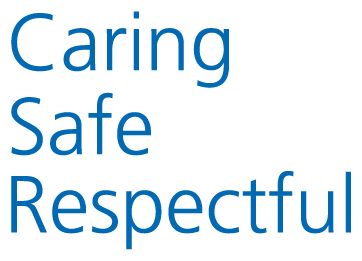The Pathology Directorate has more than 250 staff who work together to provide a high-quality diagnostic service.
Consultants and clinical scientists
The laboratory has several clinical specialists with expertise in particular aspects of Pathology. Their roles include, providing specialist advice to the medical staff on the wards, diagnosis and treatment of patients with specific diseases, infection prevention advice, antimicrobial therapy advice and some perform postmortems.
Biomedical scientists
Biomedical scientists work as a team to carry out a range of laboratory and scientific tests on blood, tissues and fluids to help clinicians diagnose and treat diseases. Biomedical scientists give test results to medical staff, who will use the information to diagnose and treat the patient’s illness. They are educated to degree standard and must be registered with the Health Care Professions Council (HCPC) to practice in a laboratory. Biomedical scientists are highly trained staff and are expected to keep their professional knowledge up to date and have knowledge of diagnostic innovations. This is important for continual professional development and to maintain professional registration with the (HCPC). All Biomedical scientists are expected to supervise, mentor and support trainee biomedical scientists and other support staff. Each discipline within Pathology has a head or department (lead biomedical scientists) and they are generally supported by a senior biomedical scientists team.
Associate practitioners
Associate practitioners provide professional support to Biomedical Scientists and other staff within the Pathology laboratory. Their duties include carrying out laboratory analyses relevant to their discipline, including maintaining appropriate records and documentation. Associate practitioners undertake quality control procedures and examine quality control results to assess performance and report these results back to biomedical scientist colleagues. They are also expected to participate in the operation, routine maintenance and troubleshooting of laboratory equipment as necessary.
Medical laboratory assistants
Medical Laboratory Assistants (MLAs) are required to work as part of a team within the pathology laboratory, supporting Health Care Professions Council (HCPC) registered biomedical scientists. They are responsible for preparing patient samples for testing and carrying out basic laboratory duties, for example monitoring stock and recording data such as temperatures. Their work routine demands skill, attention to detail and a responsible attitude.
Phlebotomists
Phlebotomists are responsible for performing venepuncture (taking blood from veins). The blood collection procedure involves piercing the veins with a needle to withdraw the blood into a tube, ready for analysis.
Mortuary technicians or anatomical pathology technicians
Mortuary technicians are responsible for the respectful reception and storage of the deceased. They are also responsible for presentation of the deceased for viewing or identification purposes in a respectful and dignified manner and assist the pathologist at the post-mortem.
Non-technical staff
The laboratory employs a variety of clerical, secretarial and IT staff, all of whom support the staff and the service as a whole.
Our departments have IBMS training status for biomedical scientists and assistant practitioners. We are also an accredited training centre for Clinical Scientists from the National School of Healthcare Science for Biochemistry, Microbiology and Haematology.
We have an excellent record in training and for providing opportunities for staff development including apprenticeships across all grades of staff. We have training links with Salford University, Blackpool and the Fylde college, University of Central Lancashire and Lancaster University.



